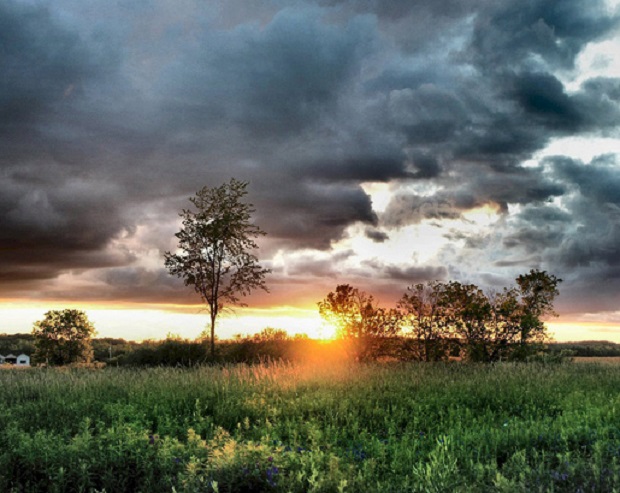Cities Get Clean Energy
City leaders across the United States see that energy efficiency means not only carbon reduction but also good government and sound economic policy


“I don’t believe in magic,” Billy once said. “I believe in the sun and the stars, the water, the tides, the floods, the owls, the hawks flying, the river running, the wind talking.

Our forests and coastal wetlands store more carbon than we thought. We bring you all of that good news and more in this first Northwest Biocarbon Initiative Digest of 2014.

The Puget Sound estuary has the potential to store 8.9 million tons of CO2, the equivalent of 1.76 million cars. That’s almost as many cars as are registered in Snohomish and King Counties – the most densely populated part of Washington State.

Who knew that oil and chocolate had anything in common beyond its color? A few thoughts for Valentine's Day.

Farm support programs that target only food production miss huge opportunities to generate natural benefits, a new British study documents.

A capacity crowd of 160 thought leaders and innovators gathered on June 10, 2013 at the University of Washington's Center for Urban Horticulture in Seattle for the first-ever Northwest Biocarbon Summit.

One of the special highlights at the Northwest Biocarbon Summit–for me and many others–was a remarkable series of “Speed Talks” by real-world Northwest practitioners who brought to life the full portfolio of biocarbon solutions.

By preserving and expanding areas of coastal vegetation such as mangroves, sea grass beds, and marshes, we can mitigate some of the effects in burning fossil fuels and turn the tide on our rising greenhouse gas emission

A conversation between Chad Kruger, Director of WSU Center for Sustaining Agriculture and Natural Resources, and Allan Savory, Presiden

Urban green infrastructure is increasingly seen as an effective way to meet regulatory obligations for control of polluted runoff or high stormwater flows, while also generating an array of ecosystem service co-benefits.
Join our email list to learn about what we do and how to get involved.
City leaders across the United States see that energy efficiency means not only carbon reduction but also good government and sound economic policy
Bellevue, WA has been quietly earning accolades for its achievements in sustainability, clean energy and energy efficiency. What's next for this leading city?
Redmond, WA is walking its clean energy talk, allocating $820,000 to reduce the city's energy consumption and carbon footprint.
Would you buy a car without knowing how fuel-efficient it is? What about a building? Check out how Portland is making buildings' energy-efficiency data public, and why that's expected to reduce carbon emissions and save money for both owners and tenants.
Oregon has a lot of forests, and great conditions for growing long-lived trees, and those forests store a lot of carbon. Aggressive and unsustainable logging of those forests can contribute heavily to greenhouse gas emissions and climate change.
This free public event connects local residents and business owners with services, products, companies, and agencies that address sustainability needs in our community. Participants learn about transportation choices, green construction, energy conservation, reuse and recycling, solar energy, local food and gardening, and cost-effective sustainability practices.
Microsoft’s campus in Redmond, WA is effectively a city of 500 acres and more than 125 buildings, with a daytime population of 58,000.
Despite its huge successes, Washington’s Energy Independence Act (better known by it’s ballot number, I-937) seems to fly under the radar. This anonymity is about to change.
China announces nationwide carbon market to start next year, leading CEOs call for pact to reduce carbon pollution to zero by 2050, electric bus unveiled with 200-mile range, and more stories of the week in clean energy solutions.
The Oregon Conservation Network (OCN) is coordinated by OLCV's Education Fund.
Over 40 Oregon conservation organizations work together in the Legislature on shared Priorities for a Healthy Oregon. Together, we pass pro-conservation laws, protect our unique quality of life, and ensure a better Oregon for our children.
OCN is powered by the thousands of Oregonians who belong to its member organizations.